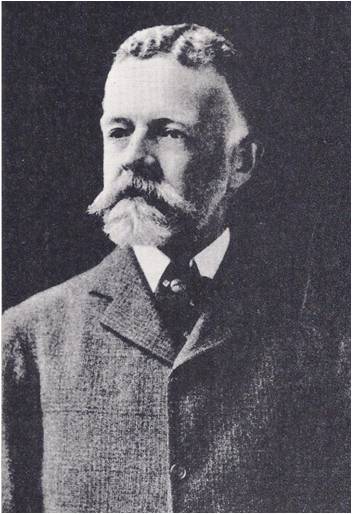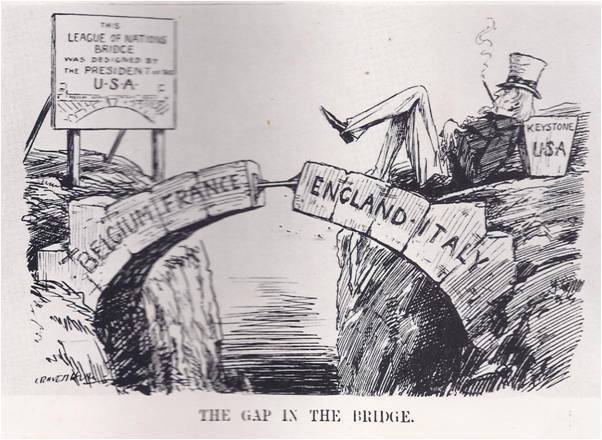DURING THE war, three great empires — the Russian, the Austro-Hungarian and the German –had vanished forever. Then, by the Treaty of Sévres, a fourth empire, the Ottoman, was quietly put to death. Turkey was confined to Asia Minor and became a republic. Of its former possessions, the League of Nations assigned Syria and Lebanon to France and Palestine and Iraq to Great Britain. Trans-Jordan and Saudi Arabia, which had fought the Turks under an adventurous British colonel named T. E. Lawrence, became independent kingdoms.
In Europe, there were seven new states: Finland, Estonia, Latvia, Lithuania, Poland, Czechoslovakia and Yugoslavia. The first six, with Rumania, formed a zone that blocked Russian communism from spreading westward. Rumania had grown larger at the expense of Hungary, Russia and Greece at the expense of Turkey. Hungary and Austria were made small independent states, with no link between their governments.
The South Slavs, who had triggered the crisis that brought on the war, saw their dream come true in a free, united Yugoslavia, but some Yugoslavs were still dissatisfied, for the Allies, in line with their secret treaty of 1915, had given Italy the port of Trieste and some islands on the Dalmatian coast of the Adriatic. Italy also received the Trentino and South Tyrol, former Austro-Hungarian lands.
AMERICA AND THE LEAGUE
Although the five treaties of the Peace of Paris changed the map of the world, it left more than one nation resentful and discontented. The Italians felt that the Allies had betrayed them by not giving them any of the German colonies. The Japanese felt cheated of their rightful gains in the Pacific and the Germans were particularly bitter, for they felt they had been unjustly treated in almost every way. When the peace conference began, they had expected that the Allies would treat them with moderation. After all, they had adopted a democratic form of government, in keeping with the wishes of President Wilson. The German republic had been forced to accept a treaty so harsh that the change of government seemed to have no effect on the Allies; they acted as if they were still dealing with the German Empire.

Germany had a tradition of militarism and obedience to authority, rather than a tradition of democracy and the Treaty of Versailles did nothing to aid the development of German democracy. The German people overlooked the fact that the Republic had had little choice and blamed it for agreeing to the humiliating treaty; the hard times that followed the war added to their dislike and distrust of the government.
Later, the Allies themselves began to have some doubts about the treaty. They saw that some of its provisions, like the demand for huge payments, could not be enforced and that other provisions, such as the creation of an all-professional army, might lead to results that were the opposite of what they intended.
The United States never formally agreed to the treaty. Wilson could not sign it unless it was ratified by the Senate and as soon as he came home from the peace conference he worked to win the Senate’s support. Since the treaty contained the Charter of the League of Nations, accepting it meant joining the League. At first, many Americans favoured this step, but some men in high positions were against it and among them was Henry Cabot Lodge, the senator from Massachusetts.
Lodge was a Republican and he had long been opposed to the policies of Wilson, who was a Democrat. In the struggle over the treaty and the League, he had some important advantages. The Republicans outnumbered the Democrats in the Senate and they had no wish to aid the head of the rival party. Moreover, as Chairman of the Senate’s Foreign Relations Committee, Lodge could postpone a vote on the treaty until he was sure of his strength — and he did.
WEAKNESS OF THE LEAGUE
As the months passed, Americans began to lose their faith in Wilson’s ideals. They were shocked by the sharp bargaining of the Allied leaders in Paris and the weakening of the Fourteen Points. They were disgusted with Europe and its endless quarrels and struggles for power. Perhaps the United States should tend to its own business and let Europe look after itself. Lodge and others who opposed the League played on these feelings and public opinion began to change in their favour.

Wilson refused to give up and allow his country to turn away from the great ideals for which he had fought. Although he was sixty-three years old and worn out by the strain of governing the nation through such difficult years, he decided to carry the fight to the people. In spite of the warnings of his doctors, he set out on a cross-country speaking tour. Traveling by train, he spoke day after day, to small groups in small towns and to huge crowds in the cities. Most of the people who heard him were enthusiastic. The newspapers reported that on September 25, in Pueblo, Colorado, “the entire audience arose and cheered for a full ten minutes.” That speech was Wilson’s last. He collapsed of a stroke early the next morning and was taken back to Washington‚ where for months he lay ill.
In Match of 1920 the Versailles Treaty came before the Senate for its final vote; the Republicans had added amendments that would limit America’s participation in the League. Even so, a compromise might have saved the situation, but Wilson was a stubborn and determined man who would allow no compromise‚ especially with Lodge. Now partly recovered, he urged the Senate to reject the treaty because of its crippling amendments. The vote was 49 for the treaty and 35 against, short of the two-thirds majority necessary to ratify it.
Wilson died four years later and the United States never did become a member of the League. Part of Wilson’s dream was realized when, on March 19, 1920, the League was established, with headquarters in the Swiss city of Geneva. The mere existence of an organization for the settling of disputes among nations was a great step forward. Germany was admitted in 1926 and Soviet Russia in 1934. At the same time, the work of the league was hampered by the absence of the United States. Besides, its most powerful members were Britain and France – and they preferred to deal directly with other nations, as they had in the past. As a result, the League remained weak.
The League proved unable to discipline Hitler and Mussolini and it failed in crises in the Far East. In 1939 it went out of existence, an early victim of World War II, but something of Wilson’s idealism lived on, for the League, unsuccessful as it was, prepared the way for an even greater experiment in international cooperation — the United Nations.





